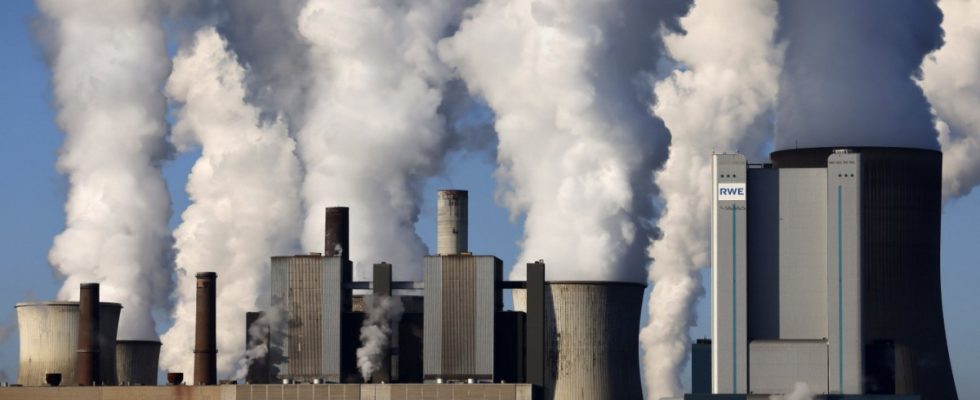The federal government is allowed to pay Germany’s largest electricity producer RWE 2.6 billion euros in compensation for the coal phase-out. The EU Commission approved this state aid on Monday. The money is to be transferred in tranches until 2030. The government and the DAX company agreed in 2020 to use this amount to compensate RWE for shutting down the lignite-fired power plants in North Rhine-Westphalia by 2038 at the latest.
The EU Commission has now come to the conclusion that the total amount of lost profits will exceed 2.6 billion euros. The Brussels competition authorities therefore assessed the payment as appropriate. According to the federal government’s wishes, the East German power plant operator Leag, which burns lignite from Lusatia, is to collect 1.75 billion euros in compensation. The Commission’s examination is continuing here.
At least in the case of RWE, 2038 is no longer the current exit date. Last year, the group agreed with the federal government and the government of North Rhine-Westphalia to shut down the climate-damaging power plants as early as 2030. That’s why more money doesn’t flow: RWE announcedthe “further accelerated decommissioning” will take place “without additional compensation payments, but will be compensated with the already agreed 2.6 billion euros”.
At the same time, however, two power plant blocks – Neurath D and E – are to run longer in order to secure electricity supply despite the loss of Russian gas supplies. The systems west of Cologne should have been taken off the grid in 2022, but are now producing electricity until next March. The Federal Ministry of Economics is currently examining whether the blocks will be given another year’s extension.
Germany needs gas power plants
Federal Finance Minister Christian Lindner (FDP) is also raising doubts about whether the coal phase-out by 2030 can even be achieved. However, RWE CEO Markus Krebber made it clear that his group wanted to stick to the date.
The advantage of coal-fired power plants is that they can deliver predictable electricity, unlike solar and wind farms, whose output fluctuates. In order for Germany to survive without coal-fired electricity in 2030, gas power plants must be built. They can be flexibly ramped up and down to compensate for fluctuations in green electricity systems. And in the future they will burn climate-friendly hydrogen instead of natural gas. Also RWE wants gas power plants with at least three gigawatts of power.
However, the gas power plants would only produce electricity for a few hours, as an emergency measure. In order for the high investments in the stability of the supply to still be worthwhile, the state must support these projects. However, the federal government has still not presented a concept for this. Planning and construction of the facilities takes five or six years. Providers like RWE must therefore get started soon so that the power plants are online in 2030. However, without clarity about the financial incentives, managers cannot release the investments. CEO Krebber says RWE is “desperately waiting” for the government’s concept.

